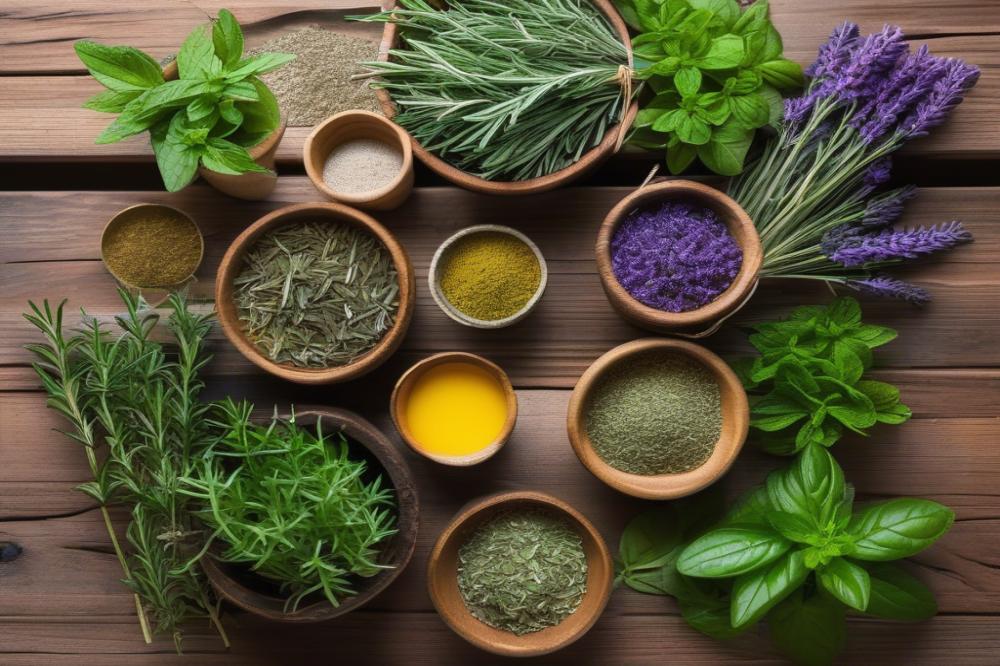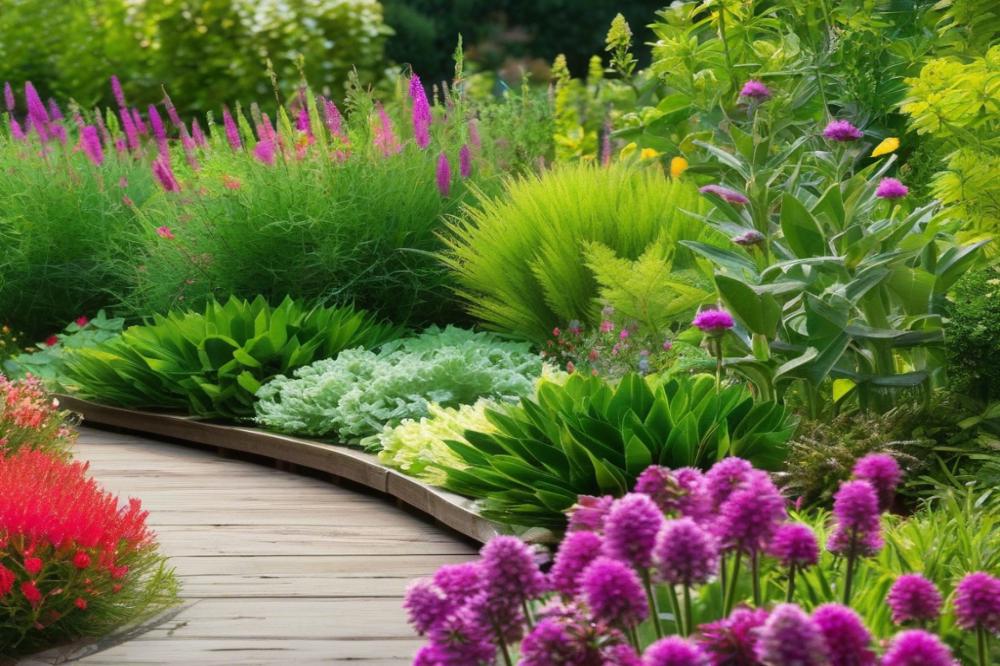The Power of DIY herbal remedies in pest management
pest management is crucial for any gardener. Unwanted insects and pests can wreak havoc on plants, reducing yields and harming overall garden health. By taking proactive steps, gardeners can protect their crops from damage. A healthy garden not only looks good but also provides fresh food for families.
Recently, many have turned to DIY herbal remedies as a sustainable solution for pest issues. These home remedies use natural ingredients, making them appealing to those who wish to avoid harmful chemicals. When it comes to effective gardening tips, herbal solutions often lead the way. Essential oils derived from plants can act as insect repellent while being gentle on the environment.
The rise of organic gardening has changed the way people approach pest control. This method emphasizes working with nature rather than against it. natural pest control aligns well with eco-friendly solutions. Methods that promote plant health not only reduce pest numbers but also contribute to the overall balance of the garden ecosystem.
More gardeners are realizing that they can create their own effective remedies at home. These approaches can save money while also reducing chemical usage. It’s a simple way to maintain a flourishing garden. By embracing sustainable practices, individuals support their health and the planet.
Understanding DIY Herbal Remedies
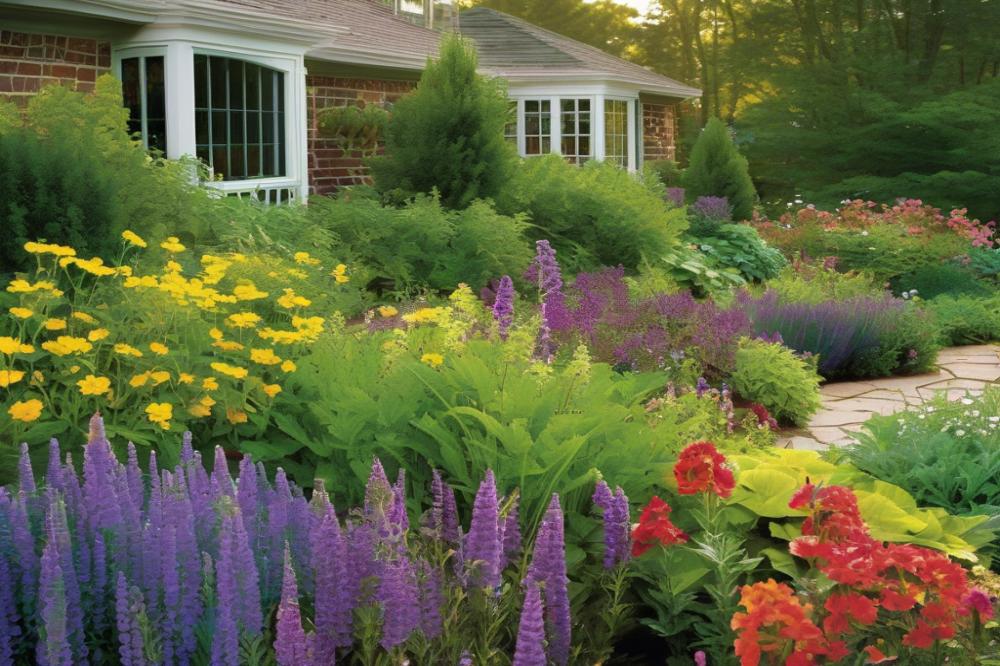

DIY herbal remedies refer to the use of plants and plant-based substances to manage pests naturally. They cover a wide range of techniques and ingredients that can help keep gardens healthy. The goal is to find effective solutions without relying on harsh chemicals.
Historically, people have used various plant extracts for pest management long before modern insecticides were developed. Ancient civilizations employed these methods in their gardens to ward off unwanted pests. From the Egyptians using garlic to the Chinese leveraging chrysanthemum flowers, herbal solutions have stood the test of time. These traditional practices highlight the power of nature in maintaining plant health.
Adopting herbal solutions has numerous benefits over chemical pesticides. First, they are generally safer for humans, pets, and wildlife. Eco-friendly solutions promote a healthier environment. Many individuals seek ways to practice organic gardening, avoiding synthetic substances for personal or ecological reasons. Furthermore, essential oils, derived from plants, can serve as effective insect repellents and help reduce pest populations without harmful side effects. This approach not only aids in pest control but also aligns with sustainable practices many gardeners value today.
Using home remedies made from herbs encourages creativity and a personal touch in gardening tips. People can experiment with what grows well in their locality. This experimentation can lead to unique discoveries and success stories among gardeners. Harnessing the power of nature empowers individuals to play a more active role in their pest management strategies. Instead of relying on commercial products, the focus shifts back to natural solutions that connect them to their own gardens.
Common DIY Herbal Remedies for Pest Control
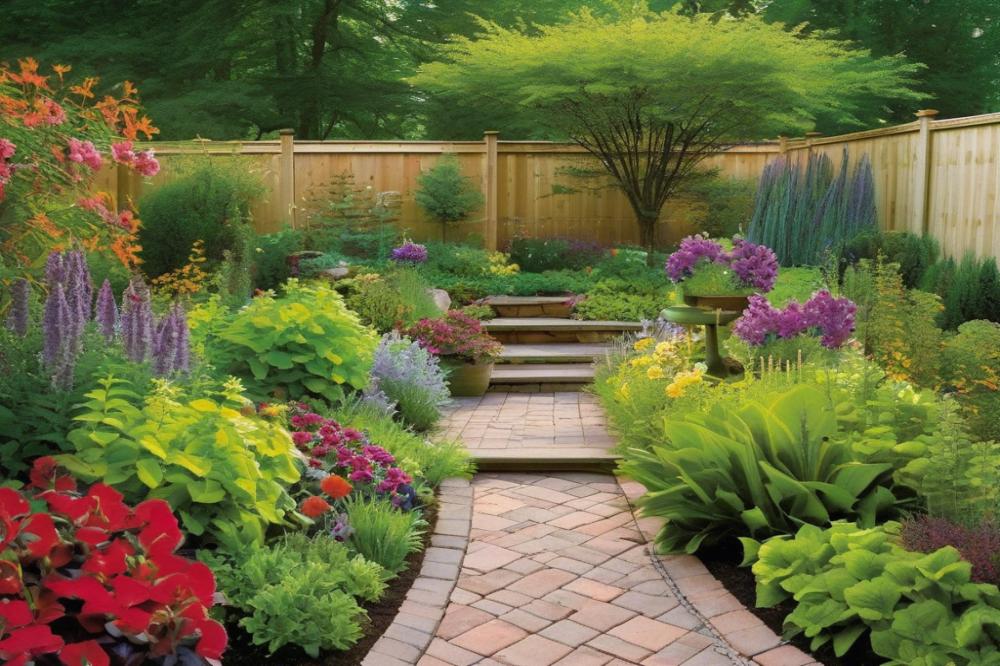

Many gardeners seek effective methods for keeping pests away from their plants. By using herbs and plants, they can find natural pest control solutions that are both safe and eco-friendly. Several common herbs serve this purpose well. For instance, rosemary, mint, and basil have properties that repel insects naturally. Not only do these plants help deter pests, but they also add flavor to meals. These herbal solutions empower gardeners to take charge of their pest management.
Recipes for Effective Herbal Insect Repellents
Creating homemade insect repellent is simple and fun. One popular recipe involves fresh mint. To make this repellent, gather a cup of crushed mint leaves and mix them with a quart of water. Let the mixture sit overnight. After straining, pour it into a spray bottle. This solution will effectively keep ants, mosquitoes, and flies at bay.
Another easy recipe uses rosemary. Combine a tablespoon of rosemary needles with two cups of water in a pot. Boil the mixture for about 15 minutes, and then cool it. A fine strainer can help remove the plant material. Once cooled, transfer it to a spray bottle and apply it around plants to create a protective barrier.
The Role of Essential Oils in Creating Homemade Pest Deterrents
Essential oils also play a significant role in pest management. These concentrated extracts possess strong scents that insects dislike. Oil of lemon eucalyptus, for example, is a powerful insect repellent. Just mix a few drops with water in a spray bottle for an effective home remedy. This oil can deter mosquitoes from ruining a summer evening.
Using tea tree oil is another great option. Its antibacterial properties make it popular for plant health, while its strong aroma repels many pests. Combining several drops of tea tree oil with water can create a potent deterrent for your garden. People often gravitate toward these practices for their organic gardening projects, knowing they contribute to sustainable practices.
By incorporating these herbs and oils, gardeners can achieve effective pest control with everyday items. As they explore these solutions, they can feel confident in their ability to protect their plants without harmful chemicals. Journaling gardening tips can further enhance your knowledge of these natural methods. Every recipe and technique adds valuable skills to a gardener’s toolkit.
Application Techniques for Herbal Remedies
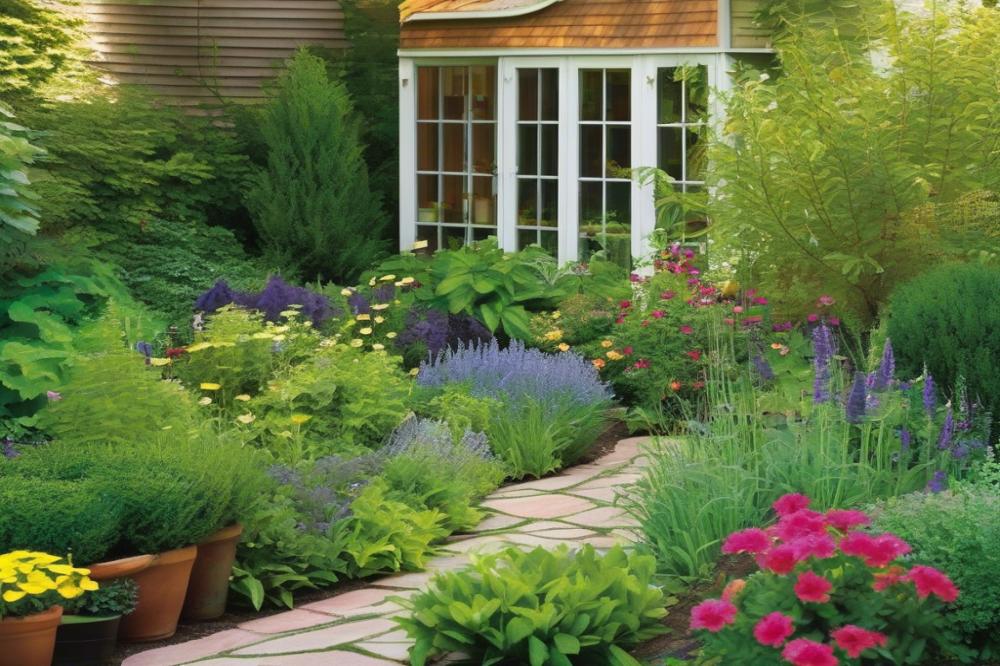

Applying herbal solutions in your garden can be both rewarding and effective. Start by choosing the right mixture for your specific pest problem. For instance, a blend of essential oils such as peppermint or rosemary can act as a strong insect repellent. Making these remedies often involves steeping herbs in water or creating oil infusions. Once prepared, transfer the mixture into a spray bottle for easy use.
Timing matters greatly when you use natural pest control methods. Early morning or late afternoon is the best time to apply these remedies. At these times, beneficial insects are less active, meaning you reduce the risk of harming them. Regular applications may be necessary, especially after rain. Once a week can be a good rule of thumb, but be observant and adjust based on your garden’s needs.
Integrating home remedies into your routine can enhance plant health and protect your crops. Consider mixing your herbal solutions with regular watering or fertilizing schedules. This can help to reinforce the benefits of organic gardening while reducing pest populations. Additionally, keeping a close eye on plant conditions allows you to respond quickly to any emerging problems.
Don’t forget to test any new remedy on a small area first. This is crucial, as some plants may react negatively to certain ingredients. Monitor how your plants respond over a few days. Document what works well and what doesn’t. By keeping notes, you create a personalized approach that enhances your gardening experience.
Embracing sustainable practices enriches your gardening journey. Choose eco-friendly solutions that align with your principles and preferences. Combining these practices creates a holistic approach to pest management. Not only do you protect your plants, but you also contribute to a healthier environment. With persistence and care, these methods can redefine how you view gardening.
Enhancing Plant Health through Herbal Solutions
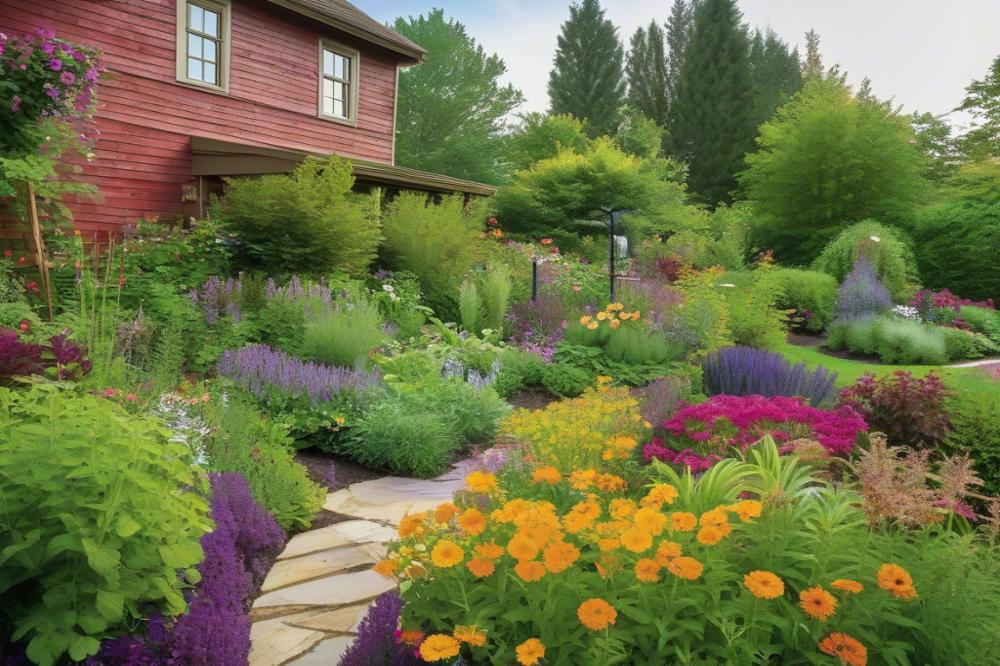

Herbal remedies have a significant impact on overall plant health. These solutions not only support stronger growth but also create an environment less conducive to pests. Healthy plants are often more resilient against infestations, leading to a natural balance within the garden ecosystem. When using home remedies, gardeners can take advantage of the natural properties found in plants. Essential oils, for instance, serve as effective insect repellent agents, reducing the need for chemical pesticides.
Companion planting is a strategy that pairs pest-repellent herbs with other plants. This ancient technique allows certain plants to protect each other against unwanted visitors. For example, basil planted alongside tomatoes can fend off pests like aphids and spider mites. Marigolds are another great choice, with their strong scent deterring various insects. Pairing these herbs with veggies not only boosts plant health but also enhances the garden’s diversity.
Sustainable practices help balance plant health and pest management. Organic gardening encourages methods that respect the earth and keep chemicals away from our foods. Using natural pest control methods instead of commercial options makes a big difference. Gardeners should explore using garlic, neem oil, or even cayenne pepper as effective treatments against pests. By embracing herbal solutions, they contribute to eco-friendly solutions and create a healthier environment for their gardens.
Sustainable Practices in Gardening
Gardening isn’t just a hobby; it’s a way to connect with nature. Many people overlook the importance of sustainability in pest management. Using toxic chemicals can harm not just pests, but also beneficial insects and the wider environment. Instead, gardeners can think about eco-friendly solutions that protect both plants and the planet.
DIY herbal remedies provide an excellent example of how to approach pest control organically. Natural pest control methods, like homemade insect repellent, are effective at keeping unwanted bugs away without harsh chemicals. Essential oils derived from plants serve as powerful herbal solutions. These oils are not only safe but can actively promote plant health too. Consider using peppermint or neem oil in your garden. They repel pests while preserving the ecosystem.
Incorporating sustainable practices means adopting a holistic approach to gardening. It encourages local gardening tips that foster biodiversity. Emphasis should be on creating a balanced environment where plants, insects, and animals coexist. Home remedies crafted from common herbs can be just as effective as store-bought alternatives. This approach respects the delicate balance of nature and supports organic gardening principles.
Every small action counts, especially in pest management. By turning to unique, natural solutions, gardeners contribute to environmental health. Sharing knowledge about these methods can inspire others to do the same. The more people shift to natural methods, the healthier our gardens and communities become.
The Power of Herbal Remedies in Pest Management: Looking Ahead
Reflecting on the advantages of these natural approaches reveals their growing significance in pest management. DIY herbal remedies provide a safe and effective way to tackle garden pests without relying on harsh chemicals. Home gardeners are discovering that these alternatives not only protect plants but also promote a healthier ecosystem. Every recipe or potion concocted at home holds the potential to nurture plants while keeping invaders at bay.
Looking into the future of organic gardening, we see a shift toward sustainability. More gardeners are embracing herbal solutions as they aim to maintain a balance with nature. This trend is not only beneficial for the environment but also encourages healthier eating habits. As awareness of chemical additives continues to rise, the demand for eco-friendly pest control options will likely increase, paving the way for creativity in gardening practices.
With that in mind, it’s crucial for every gardener to explore and experiment. Crafting your own remedies can be both a fun and insightful journey. Simple herbs like mint or neem can make powerful natural pest control agents. By combining different ingredients, you can discover new ways to defend your garden while enjoying the process. Each trial offers valuable lessons that enhance your gardening skills.
In conclusion, embracing these homemade solutions allows for a more rewarding gardening experience. A healthier garden reflects careful thought and respect for nature. Now is the perfect time to roll up your sleeves, gather some herbs, and start experimenting to protect your green space.

